Thirty Years of Change in Women's Premarital Cohabitation Experience
Family Profile No. 05, 2017
Authors: Paul Hemez and Wendy D. Manning
Cohabitation prior to marriage has become a normative living arrangement in the U.S. The current profile examines shifts in the proportion of women who lived with their first husband before marriage by comparing the experiences of two marriage cohorts (1980-1984 and 2010-2014). We use the 1988 and 2011-2015 cycles of the National Survey of Family Growth (NSFG) to estimate the share of women who cohabited with their spouse prior to marriage in each cohort, as well as examine differences by race/ethnicity and educational attainment. Note that our analytical sample is not representative of the cohabitation experiences of all women in the U.S. because we only consider those who have ever married. This profile references different-gender couples due to data constraints.
Changes in the Percentage of Women Who Ever Cohabited
- Two-fifths of women who first married between 1980 and 1984 lived with their husband before marriage.
- Among women who first married between 2010 and 2014, seven in ten cohabited with their spouse prior to the wedding. The proportion of women who lived with their spouse prior to marriage increased by 75% over a thirty-year period.
Figure 1. Percentage of Women (15-44) Who Cohabited with Their First Husband, by Marriage Cohort
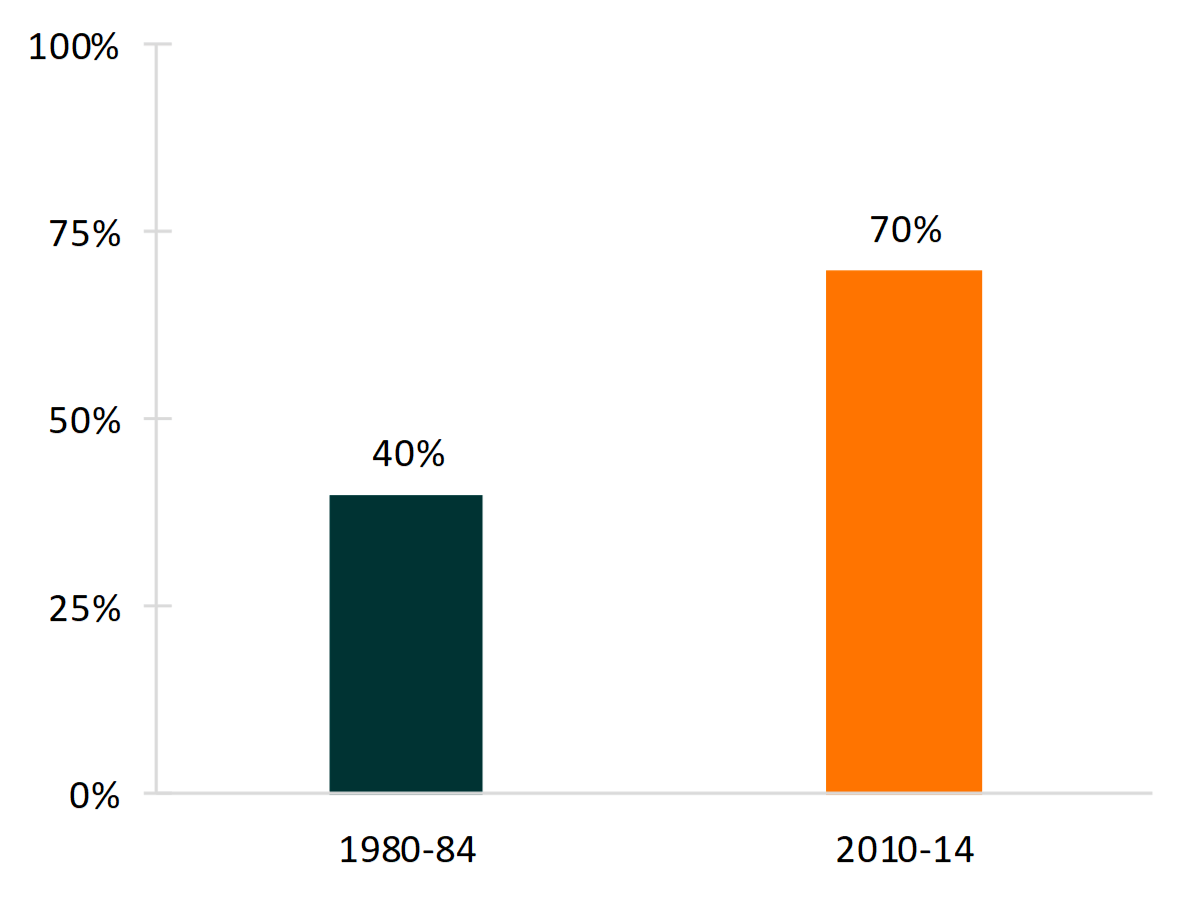
Premarital Cohabitation of First Marriage Cohorts by Race and Ethnicity
- The share of women who cohabited with their spouse prior to marriage grew among all racial and ethnic groups between the 1980/84 and 2010/14 marriage cohorts.
- The increase in cohabitation prior to marriage was lowest for White women (71 %) and greatest for Hispanic women (87%). Hispanic women now surpass White women in cohabitation prior to marriage.
- Black women more often lived with their spouse prior to marriage than Whites or Hispanics.
Figure 2. Percentage of Women (15-44) Who Cohabited with Their First Husband, by Marriage Cohort and Race/Ethnicity
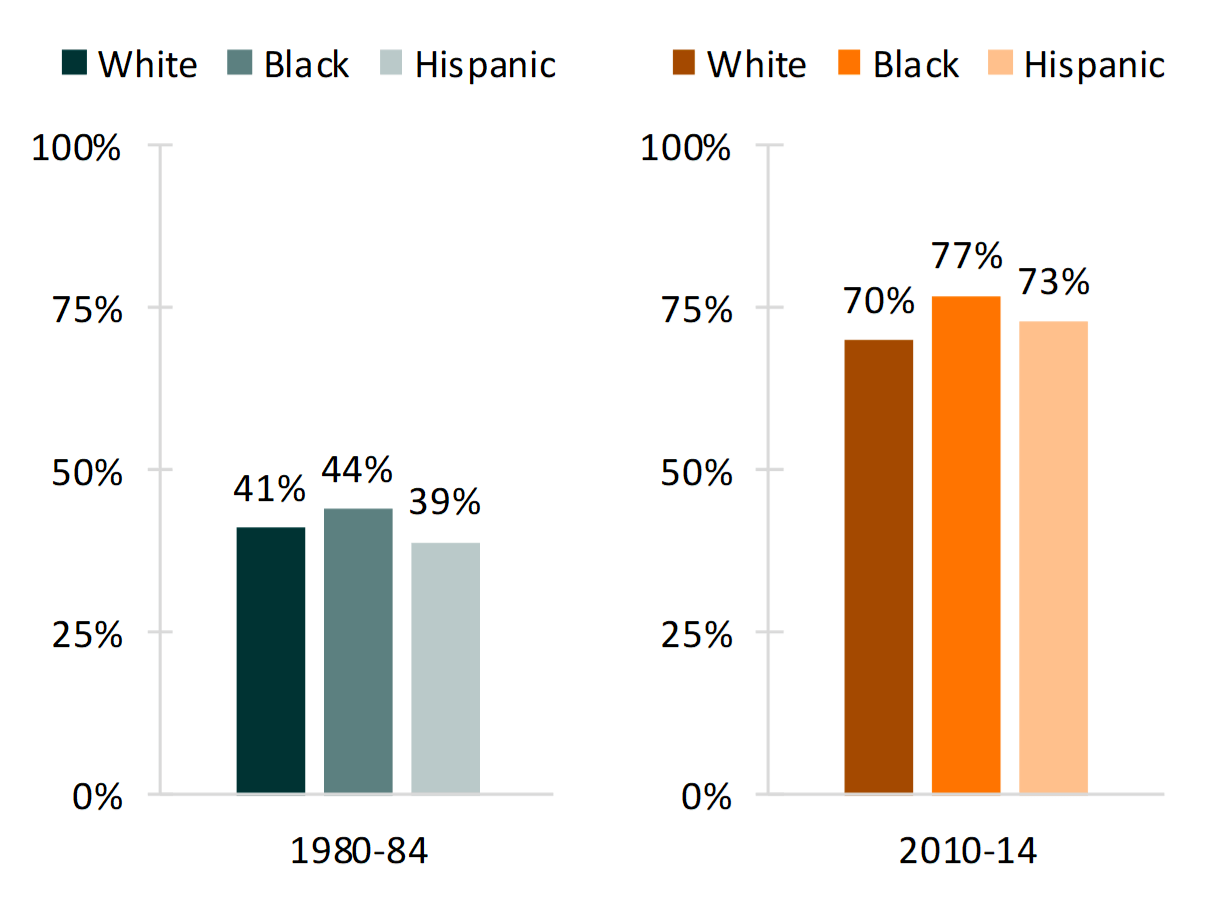
Premarital Cohabitation of First Marriage Cohorts by Educational Attainment
- Across all educational levels, the share of women who cohabited with their first husband prior to marriage increased over time.
- Premarital cohabitation experience increased the most among women with a high school education between the 1980/84 and 2010/14 marriage cohorts.
- Cohabitation prior to marriage remained most common among women with less than a high school education and least common among those with at least a Bachelor's degree.
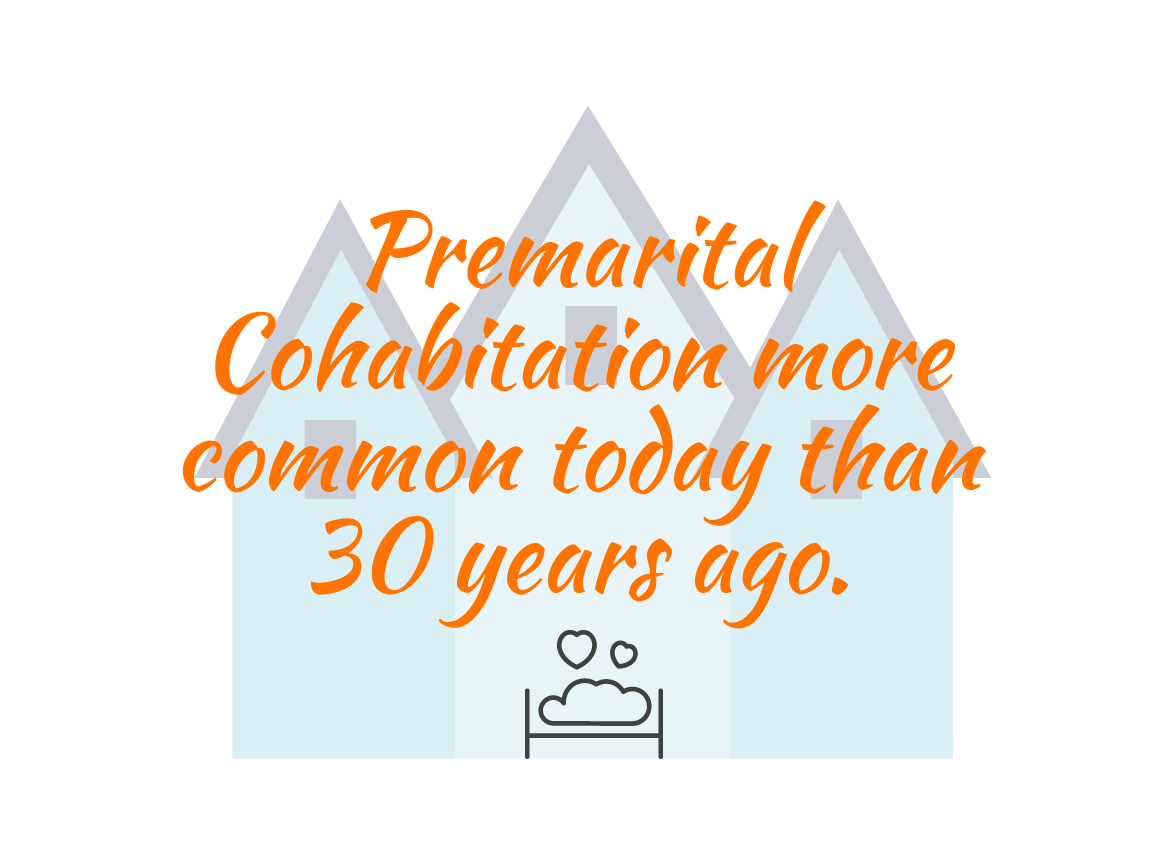
Figure 3. Percentage of Women (15-44) Who Cohabited with Their First Husband, by Marriage Cohort and Educational Attainment
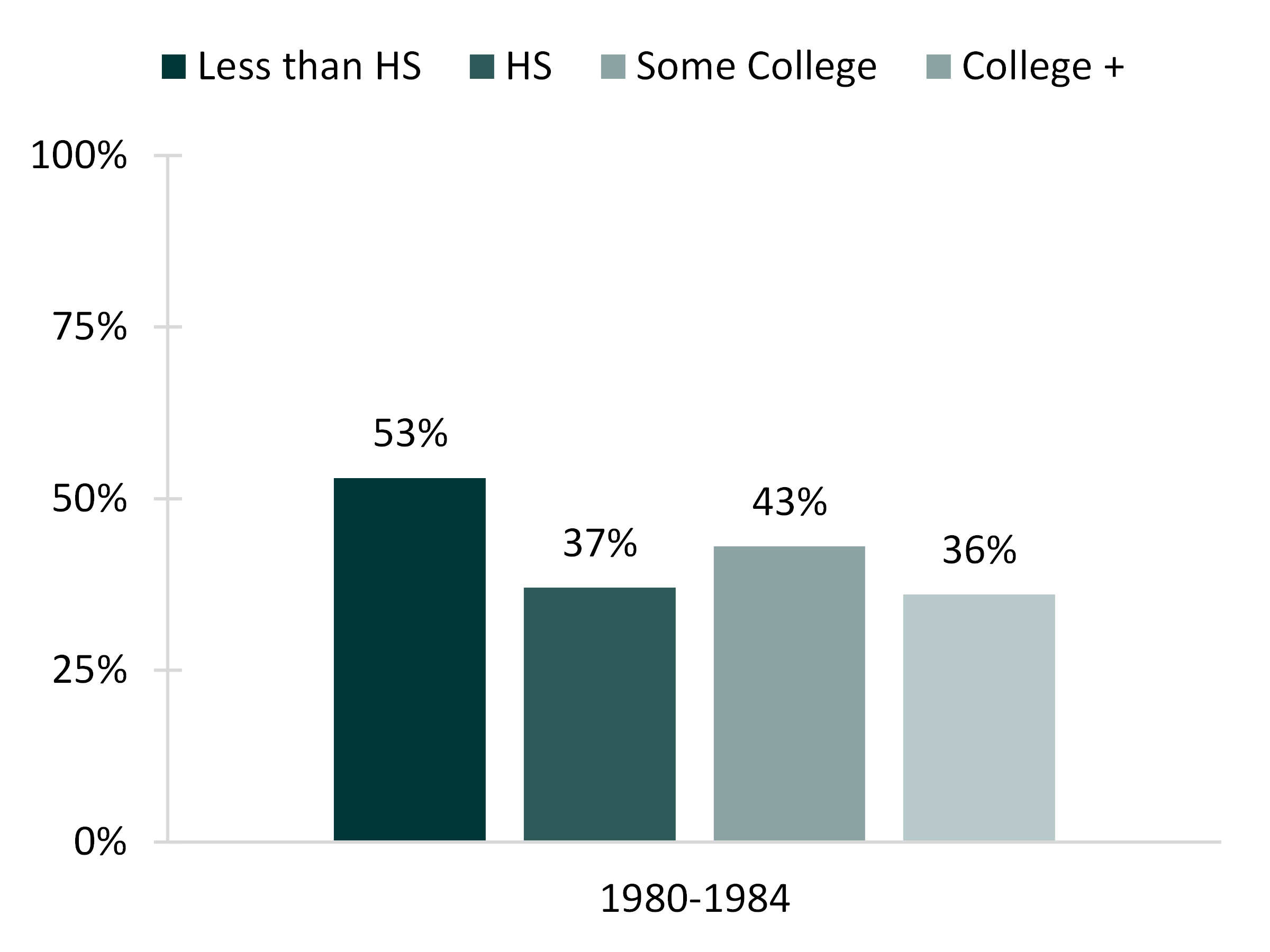
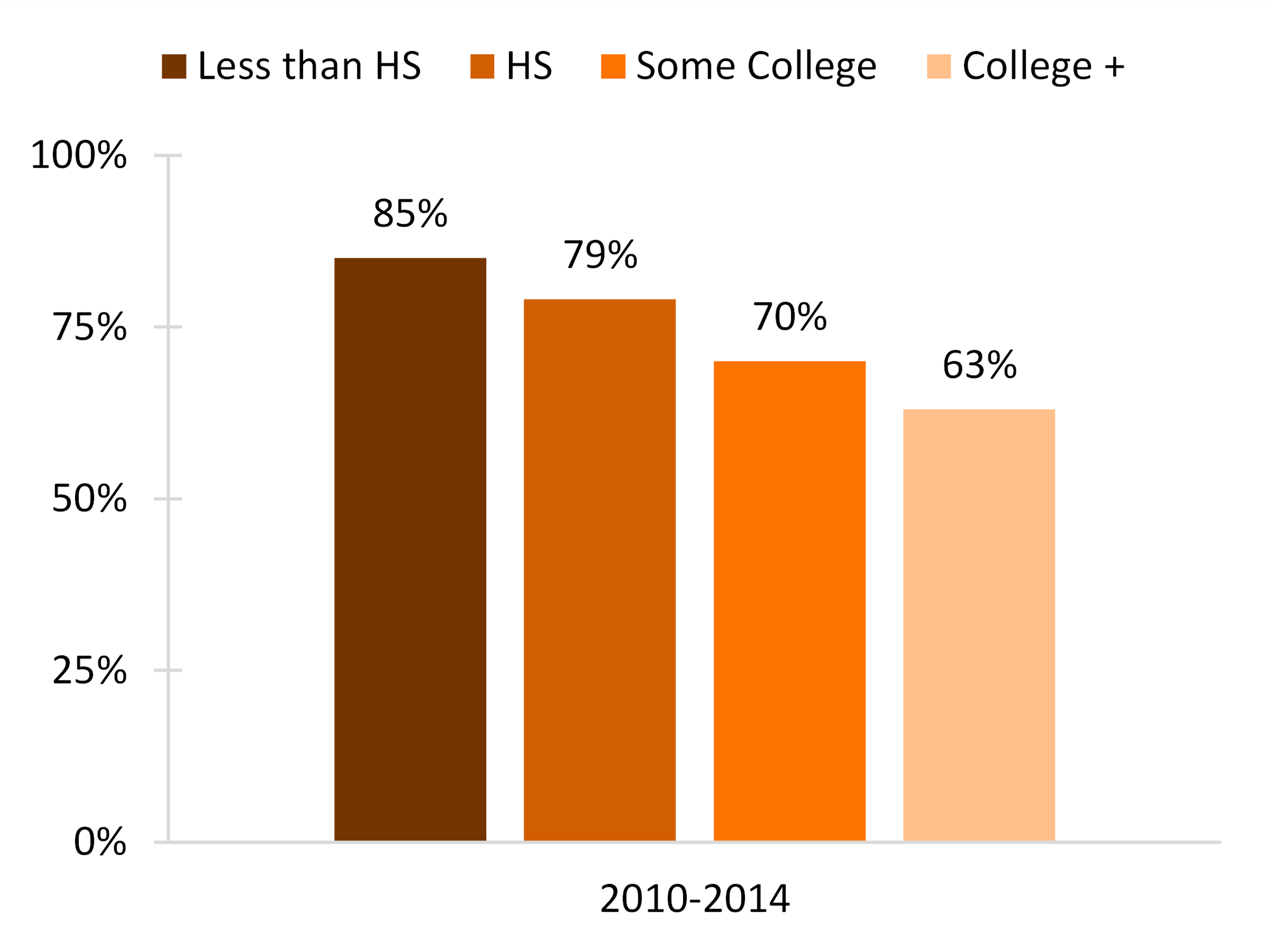
Source: NCFMR analyses of 1988 NSFG, 1980-1984 Marriage Cohort; 2011/15 NSFG, 2010-2014 Marriage Cohort
Suggested Citation
- Hemez, P. & Manning, W. D. (2017). Thirty years of change in women's premarital cohabitation experience. Family Profiles, FP-17-05. Bowling Green, OH: National Center for Family & Marriage Research. http://www.bgsu.edu/ncfmr/resources/data/familyprofiles/hemez-manning-30-yrs-change-women-premarital-cohab-fp-17-05.html
Updated: 11/07/2025 04:08PM

